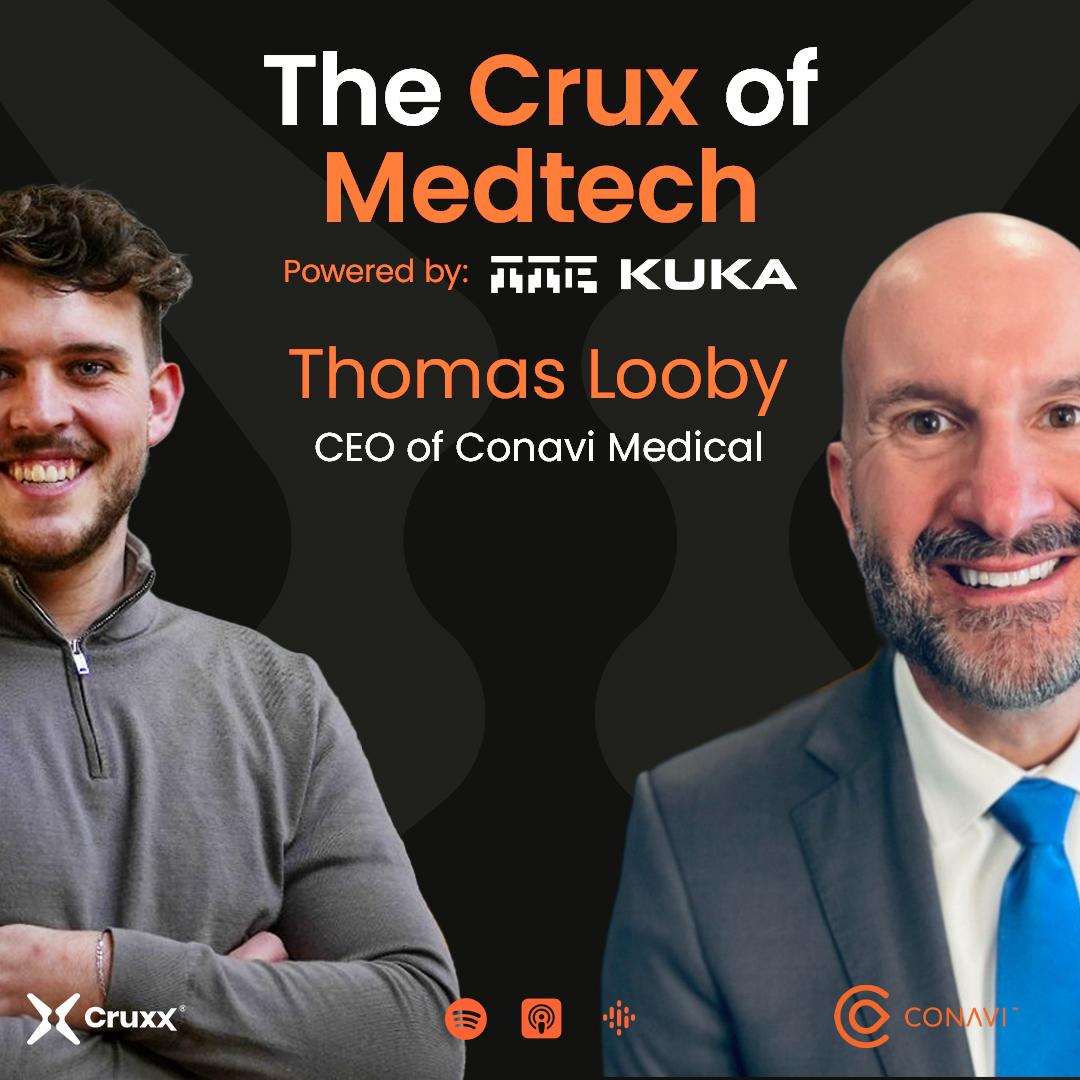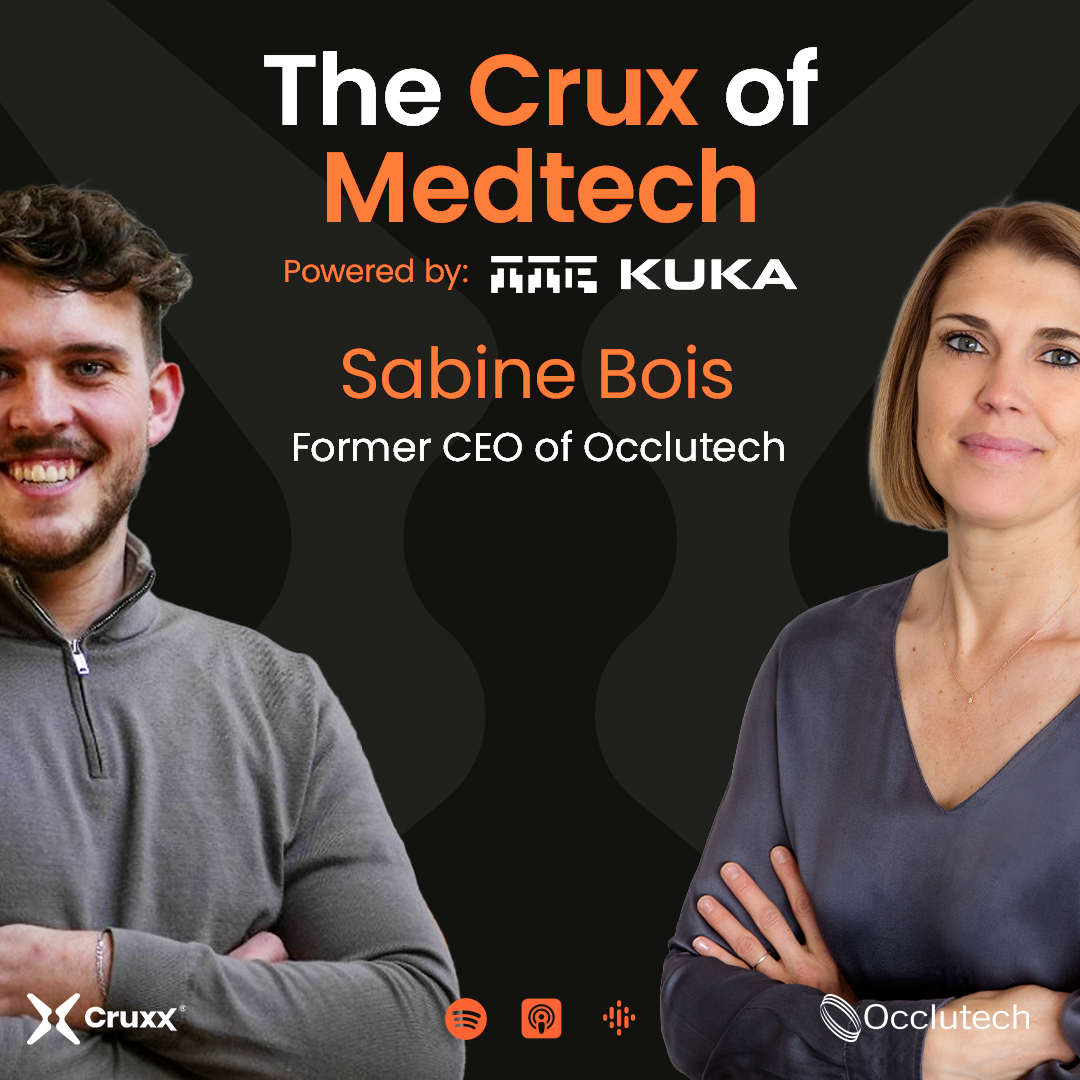During Episode 8 of The Surgibots Podcast I spoke with Lucien Goffart, the CEO of Robocath, to talk about his experiences in a first-to-market surgical robotics company.
Dual-Modality Imaging That Rewrites PCI Outcomes with Thomas Looby
During Episode 8 of The Surgibots Podcast I spoke with Lucien Goffart, the CEO of Robocath, to talk about his experiences in a first-to-market surgical robotics company.

The surgical robotics industry is an innovative space that regularly produces a number of unique platforms. During Episode 8 of The Surgibots Podcast I spoke with Lucien Goffart, the CEO of Robocath, to talk about his experiences in a first-to-market surgical robotics company.
Can you tell us about Robocath’s technology and the problems it solves?
We are developing and manufacturing a robotic platform for vascular interventions. We are making it for the European and Chinese markets. We are bringing precision to intervention. That is a key advantage of any robotic platform because it results in better treatment and therefore better patient outcomes. What really differentiates vascular robotics is that they are the only physician specialities that are exposed to X-rays. So, on top of the precision and ergonomic movements of the physician, we are also bringing protection and better working conditions to the physicians and vascular lab staff.
That is what vascular robotics is bringing today. If we think about tomorrow, though, robotics will be able to solve the problem of no man's land hospital areas and all sorts of other problems. And in some countries that are having lack of positions, some, so this is going to be the next step. Autonomous navigation interventions using AI are something else I can see in our future. We are at the very beginning of our vascular robotic journey today with the key advantages that I just mentioned earlier.
How far away do you think we are from the world of remote surgery?
From a technological standpoint, we have an attribute gap. We have to know how to perform remote procedures, and we did it ten times on animals a couple of years ago, and last year we performed a remote procedure in China from around 2000 miles away on a patient. So we do know how to do it. It is not science fiction. Catching up with certain security aspects, such as cybersecurity, will allow us to move forward and make it a daily practice. It won't be Robocath’s job actually to solve that, because it is not where we have our core competencies, but we will have to work with companies who are working in that to ensure that if we use remote procedures, it can happen safely.
Secondly, who will be responsible if something goes wrong? Would it be down to the physician who is operating? Would it be the teams around the patient? The main responsibility lies with cybersecurity and the hospitals involved. They need to decide if it makes sense to use a remote procedure. If the patient is dying because they cannot get into the right hospital quickly enough for the physician to save their life, should you use a remote robotic intervention? For stroke procedures, where every second counts, the remote capability will definitely save lives. Robotic platforms plus remote capabilities make a lot of sense in vascular and neural space.
What are the advantages of being first to market?
There are pros and cons. We had a competitor, which was good because having someone to fight against makes it easier to develop the market you’re in. When there are two or three risers, they have the money and power, to diffuse the rights messages. They can also provide big clinical trials to prove that this technology is essential, which paves the way for smaller companies to compete in the market. On the other hand, when you are alone, you know that one day or another, the competition will come. So here's the rule of the game: it's okay to say, ‘We are the first one, and this is this is what we want to achieve’, but you have to keep driving towards those goals without the competition, or you won’t measure up when it comes.

Dual-Modality Imaging That Rewrites PCI Outcomes with Thomas Looby

How to Survive FDA Battles and Boardroom Drama - with Sabine Bois